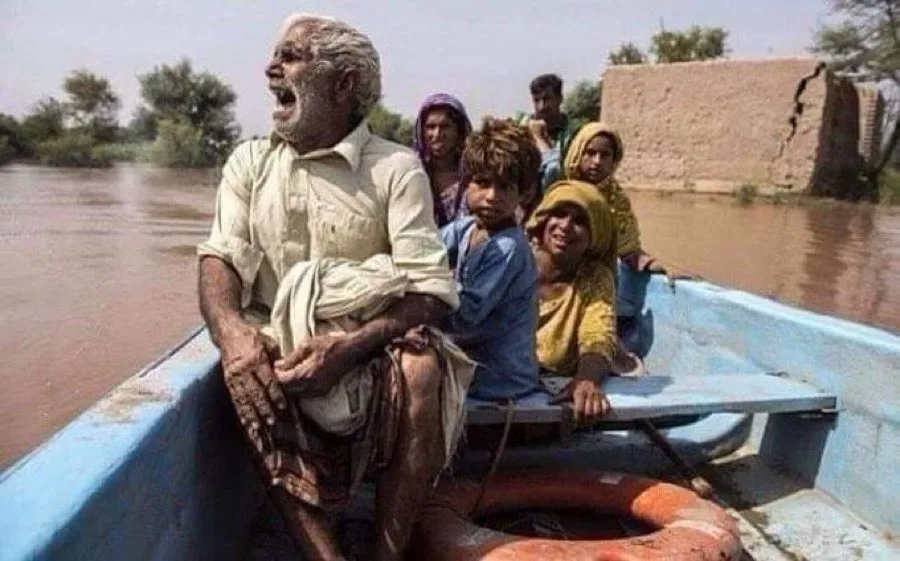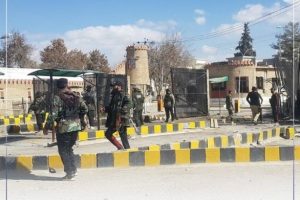Floods in Balochistan have killed 270 people and damaged nearly 185,000 houses. The heavy rains have also damaged 103 dams in the province resulting in large scale displacement of people.
Balochistan nationalists have blamed climate change as well as the exploitative policies of the Pakistan government for the disaster. Chairman of the Baloch National Movement (BNM) Dr Naseem Baloch said that the people of Balochistan are suffering from Pakistani atrocities and also environmental devastation.
NGO @anticorruption has urged PM Shehbaz Sharif and other global organisations to ensure that #donations for #FloodsInPakistan are spent in a transparent & equitable manner.@rahulkumarindia @Alok795 @atulaneja @AdityaRajKaul @jsaideepak @reliefwebhttps://t.co/EtjTLF7yNZ
— INDIA NARRATIVE (@india_narrative) September 7, 2022
Terming Balochistan as “occupied country”, he added that Pakistan has used Balochistan to fulfil its energy needs, resulting in large-scale environmental devastation in the province. He said: “HUBCO (Hub Power Company) and UCH Power Plant… are in Balochistan but their production and benefits are being borne by Pakistan. These projects are one of the largest sources of greenhouse gas emissions”, adding that the Baloch nation is witnessing its worst period in history due to persecution, environmental change, poverty and backwardness.
The BNM chairman appealed to the international community to help the Baloch people from both enforced disappearance as well as flooding issues as the local government and politicians have overlooked the misery of the community.
#Pakistan‘s tryst with #Chinese #dams and hydro-projects. With both proving to be unreliable partners, people face debilitating environmental consequences…#CPEC #Kashmir #Water #Rivershttps://t.co/scgcIHAwKQ
— Rahul Kumar (@rahulkumarindia) September 11, 2022
Meanwhile, Dawn reports that the Chief Minister of Sindh, Murad Ali Shah said on Sunday that it will take three to six months to drain out rain and floodwater from the Sindh province.
Shah said: “In some areas, there is at least eight to 10 feet of water. Even in places where it is receding, the situation is not such that people can return”. He added that Pakistan had received unprecedented rains which was almost 10-11 times higher than usual.
Pakistan’s National Disaster Management Authority (NDMA) said that Sindh is the worst-hit province due to flooding with maximum deaths and injuries. Of a total of 1,396 fatalities in Pakistan, Sindh alone has 578 according to the NDMA.
Sindh is also facing a shortage of tents and medicines even as the Pakistan government has launched an international appeal for humanitarian aid.
Pakistan’s worst-ever rains have submerged over one-thirds of the country in water, giving rise to hunger and water-borne illnesses affecting nearly 33 million people. Large-scale displacement has resulted in people living under an open sky making them more vulnerable to the vagaries of nature.
Also Read: Hindu volunteers in Noshki step up aid in Balochistan floods




















